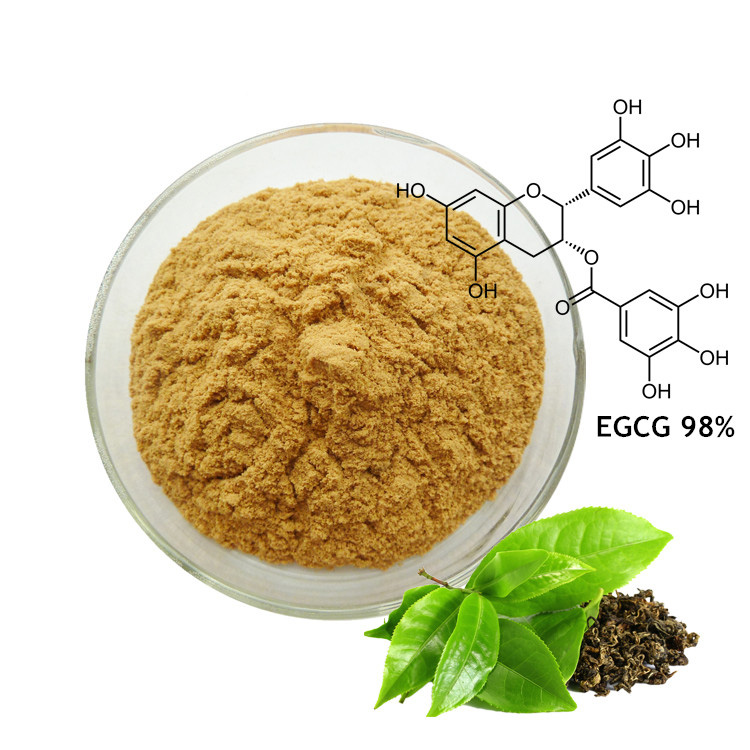Content Menu
● Understanding Green Tea Extract
● Potential Benefits for Dogs
● Risks and Considerations
● Safe Administration
● Research and Future Prospects
● Alternative Health-Boosting Strategies
● Conclusion
● Questions and Answers about Green Tea Extract
Green tea, renowned for its numerous health benefits in humans, has sparked curiosity among dog owners about its potential advantages for their canine companions. As pet parents increasingly seek natural ways to enhance their dogs' well-being, the question arises: Can dogs have green tea extract? This comprehensive exploration delves into the potential benefits, risks, and considerations surrounding the use of green tea extract for dogs.
Understanding Green Tea Extract
Green tea extract is a concentrated form of green tea, containing potent compounds known as polyphenols. These polyphenols, particularly epigallocatechin gallate (EGCG), are responsible for many of the health benefits associated with green tea consumption. While humans have long enjoyed the advantages of green tea, its effects on dogs require careful examination.

Potential Benefits for Dogs
Antioxidant Properties: Green tea extract is rich in antioxidants, which can help combat free radicals in a dog's body. These free radicals are unstable molecules that can damage cells and contribute to aging and various health issues. By neutralizing these harmful compounds, the antioxidants in green tea extract may support overall cellular health in dogs.
Dental Health: Some studies suggest that the catechins found in green tea extract may help reduce bacterial growth in the mouth, potentially leading to improved dental health for dogs. This could result in fresher breath and a reduced risk of dental diseases, which are common issues in canine health.
Weight Management: Green tea extract has been associated with increased metabolism in some studies. For dogs struggling with weight issues, this could potentially aid in weight management when combined with a proper diet and exercise regimen. However, it's crucial to note that green tea extract should never be used as a sole solution for weight loss in dogs.
Cardiovascular Health: The polyphenols in green tea extract have been linked to improved cardiovascular health in various studies. For dogs, this could potentially translate to better heart function and improved circulation, although more research specific to canines is needed to confirm these effects.
Anti-Inflammatory Properties: The anti-inflammatory properties of green tea extract may be beneficial for dogs suffering from conditions characterized by inflammation, such as arthritis. By potentially reducing inflammation, it could help alleviate discomfort and improve mobility in affected dogs.
Skin Health: Some dog owners report improvements in their pets' skin conditions after incorporating green tea extract into their care routine. The antioxidants and anti-inflammatory properties may contribute to healthier skin and a shinier coat, although individual results can vary.

Risks and Considerations
While green tea extract offers potential benefits, it's crucial to consider the risks and limitations associated with its use in dogs.
Caffeine Sensitivity: Dogs are more sensitive to caffeine than humans. Green tea extract contains caffeine, albeit in smaller amounts than coffee. Even small doses of caffeine can cause adverse reactions in dogs, including restlessness, rapid breathing, heart palpitations, and muscle tremors. In severe cases, caffeine toxicity can be life-threatening.
Liver Concerns: Some studies have raised concerns about the impact of concentrated green tea extract on liver function, particularly in fasted animals. Dogs with pre-existing liver conditions may be at higher risk of adverse effects. It's essential to consult with a veterinarian before considering green tea extract for dogs with any health issues.
Gastrointestinal Upset: The tannins present in green tea extract can cause stomach irritation in some dogs, leading to symptoms such as nausea, vomiting, or diarrhea. Dogs with sensitive stomachs may be particularly prone to these effects.
Interaction with Medications: Green tea extract can interact with certain medications, potentially altering their effectiveness or causing adverse reactions. If your dog is on any medication, it's crucial to consult with a veterinarian before introducing green tea extract into their diet.
Individual Sensitivity: Just as with humans, individual dogs may have varying reactions to green tea extract. Some may tolerate it well, while others might experience adverse effects even at low doses. Monitoring your dog closely when introducing any new supplement is essential.

Safe Administration
If you're considering green tea extract for your dog, it's crucial to approach it with caution and under professional guidance. Here are some guidelines to keep in mind:
Consult a Veterinarian: Before introducing green tea extract or any new supplement to your dog's diet, always consult with a veterinarian. They can provide personalized advice based on your dog's health status, age, and any existing conditions.
Start with Small Doses: If your veterinarian approves the use of green tea extract, start with very small doses to gauge your dog's reaction. Gradually increase the dosage only if no adverse effects are observed and under professional guidance.
Choose Quality Products: If using green tea extract supplements, opt for high-quality products specifically formulated for pets. Avoid using human-grade supplements, as they may contain additives or concentrations unsuitable for dogs.
Monitor Closely: Observe your dog closely for any changes in behavior, appetite, or bathroom habits after introducing green tea extract. If you notice any concerning symptoms, discontinue use immediately and consult your veterinarian.
Consider Alternative Forms: Instead of concentrated extracts, some pet owners opt for more diluted forms of green tea, such as cooled, decaffeinated green tea added to their dog's water in small amounts. This approach may reduce the risk of adverse effects while still providing some potential benefits.
Avoid in Certain Conditions: Dogs with liver problems, heart conditions, or those taking certain medications should generally avoid green tea extract. Pregnant or nursing dogs should also not be given green tea extract without explicit veterinary approval.

Research and Future Prospects
The use of green tea extract in canine health is an evolving field of study. While some research has shown promising results, much of the evidence is still preliminary or based on studies conducted on other species. Ongoing research aims to better understand the specific effects of green tea extract on dogs, including optimal dosages and long-term impacts.
As interest in natural supplements for pets grows, it's likely that more comprehensive studies on green tea extract for dogs will emerge. This research may provide clearer guidelines on safe usage and potentially uncover new benefits or risks associated with its use in canines.
Alternative Health-Boosting Strategies
While the potential benefits of green tea extract for dogs are intriguing, it's important to remember that it's not a miracle solution. Many of the health benefits associated with green tea extract can be achieved through other, well-established methods:
Balanced Diet: A nutritionally complete and balanced diet appropriate for your dog's age, size, and health status is fundamental to their overall well-being.
Regular Exercise: Consistent physical activity helps maintain a healthy weight, supports cardiovascular health, and promotes mental well-being in dogs.
Dental Care: Regular teeth brushing and dental check-ups can significantly improve your dog's oral health without the need for supplements.
Regular Veterinary Check-ups: Routine health examinations can catch potential issues early and ensure your dog receives appropriate care.
Natural Treats: Many fruits and vegetables safe for dogs, such as blueberries or carrots, can provide antioxidants and other health benefits in a more natural form.

Conclusion
The question "Can dogs have green tea extract?" doesn't have a simple yes or no answer. While green tea extract offers potential health benefits for dogs, it also comes with risks that need careful consideration. The key lies in approaching its use with caution, under professional guidance, and with a clear understanding of your individual dog's health needs.
As with any aspect of pet care, the well-being of your dog should be the primary concern. Green tea extract should not be viewed as a substitute for a balanced diet, regular exercise, and proper veterinary care. Instead, it should be considered as a potential supplement that may complement an already healthy lifestyle for your canine companion.
Ultimately, the decision to use green tea extract for your dog should be made in consultation with a veterinarian who can provide personalized advice based on your dog's specific health profile. By taking a thoughtful and informed approach, you can make the best choices for your furry friend's health and happiness.
Questions and Answers about Green Tea Extract
Q: Is it safe to give my dog green tea to drink?
A: While small amounts of cooled, decaffeinated green tea may be safe for some dogs, it's best to consult with your veterinarian first. Regular green tea contains caffeine, which can be harmful to dogs even in small amounts.
Q: How much green tea extract is safe for dogs?
A: The safe dosage of green tea extract for dogs can vary greatly depending on the dog's size, health status, and individual sensitivity. It's crucial to consult with a veterinarian to determine if green tea extract is appropriate for your dog and, if so, what dosage would be safe.
Q: Can green tea extract help with my dog's bad breath?
A: Some studies suggest that the catechins in green tea may help reduce bacterial growth in the mouth, potentially improving breath. However, regular dental care and addressing underlying health issues are more reliable ways to combat bad breath in dogs.
Q: Are there any dogs that should absolutely avoid green tea extract?
A: Dogs with liver problems, heart conditions, or those taking certain medications should generally avoid green tea extract. Pregnant or nursing dogs, and those with a history of sensitivity to caffeine or tannins, should also not be given green tea extract without explicit veterinary approval.
Q: What are the signs of green tea extract toxicity in dogs?
A: Signs of toxicity can include restlessness, rapid breathing, heart palpitations, muscle tremors, vomiting, and diarrhea. In severe cases, it can lead to more serious symptoms like seizures or collapse. If you suspect your dog has consumed too much green tea extract, contact your veterinarian immediately.
































